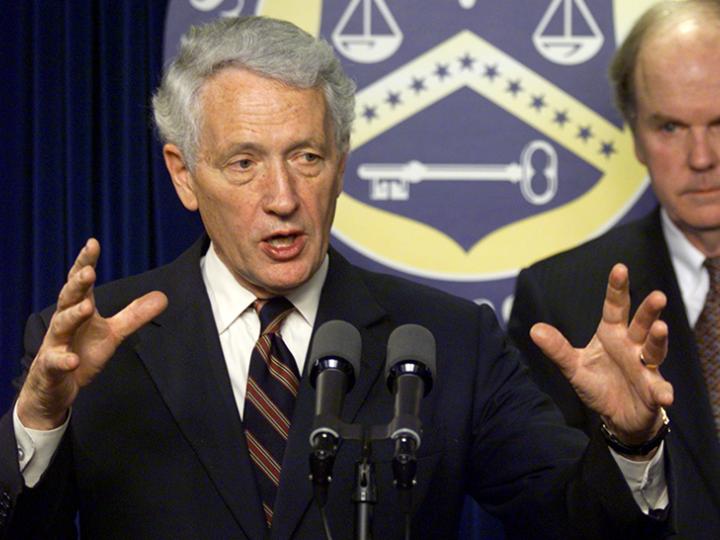Kenneth W. Dam, former University of Chicago provost and longtime professor who served as deputy secretary in the U.S. Departments of Treasury and State, died on May 31. He was 89.
Dam was elected to The American Law Institute in 1969, early in a career that was dedicated to public policy issues, both as a practitioner and as a professor. He served as deputy secretary, the second-ranking official, in the Department of Treasury from 2001 to 2003 and in the Department of State from 1982 to 1985. In 1973, he was executive director of the Council on Economic Policy, a White House office responsible for coordinating US domestic and international economic policy. From 1971 to 1973, he served as assistant director for national security and international policy of the Office of Management and Budget. He began his Washington career as law clerk to US Supreme Court Justice Charles E. Whittaker from 1957 to 1958.
Dam began at the University of Chicago in 1960. His academic career was spent entirely with Chicago (with leaves of absence) to the present. From 1980 to 1982, he served as provost of the University of Chicago. In a statement, Hanna Holborn Gray, former president of the University of Chicago, said of Dam that he was “[t]he most fair-minded of men, he brought an admirable calm and exceptional judgment to it all. I was very lucky to have enjoyed two years of this partnership before Ken left to serve as Deputy Secretary of State to George Shultz and further to fulfill his ideal of public service.”
Most of his academic work has centered on law and economics, particularly with respect to international issues. His publications include a number of books, of which the best known are The GATT: Law and International Economic Organization; Economic Policy Beyond the Headlines with George P. Shultz; and, most recently, The Law-Growth Nexus: The Rule of Law and Economic Development, in which he explored the view that institutions—in particular, the rule of law—play a critical role in determining which economies thrive and which lag behind. In this highly respected work, he defined the essential concepts that make up the rule of law—property rights, contracts, and enforcement—and analyzed the roles they play in the markets for land, equity, and debt, including exploring whether new or better legal institutions could help unlock the growth potential of the developing world.
Published in 2006, the issues explored in this seminal book remain not only relevant but even more important today. ALI member Norman L. Greene of Schoeman Updike Kaufman & Gerber, who researched the book in preparation of an article on the rule of law and economic development (published in the Denver Law Review), said, “Kenneth Dam provided shrewd insight on the impact of the rule of law on the economy. His book should be required reading for any policymaker who is taking on legal and economic reform. We, as a society, would benefit from his insight now more than ever; he will be greatly missed.”
His other activities include serving as IBM vice president for law and external relations from 1985 to 1992, and as president and chief executive officer of the United Way of America for a six-month period in 1992. He has extensive experience as an arbitrator, including five years as the system arbitrator for professional basketball. He was an honorary member of the board of the Brookings Institution and also a board member of the Committee for Economic Development, and member of the Shadow Financial Regulatory Committee. He was chairman of the German-American Academic Council and a board member of a number of nonprofit institutions, including the Council on Foreign Relations in New York and the Chicago Council on Foreign Relations. Additionally, he served for 13 years on the board of Alcoa.
Dam is survived by his wife, Marcia Wachs; son, Eliot; daughter, Charlotte; and two grandchildren.
